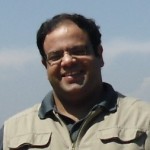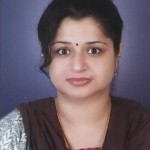
 India celebrates Doctors’ Day every year on 1 July, in memory of Bidhan Chandra Roy (1 July 1882-1 July 1962), a well respected physician who was also the second chief minister of the state of West Bengal. The day sees a fair bit of fanfare, with events held across the country, especially by bodies such as the Indian Medical Association. While the day serves to highlight the importance of medicine in society, it should also be an opportunity for medical professionals to reflect on their profession and the challenges facing it.
India celebrates Doctors’ Day every year on 1 July, in memory of Bidhan Chandra Roy (1 July 1882-1 July 1962), a well respected physician who was also the second chief minister of the state of West Bengal. The day sees a fair bit of fanfare, with events held across the country, especially by bodies such as the Indian Medical Association. While the day serves to highlight the importance of medicine in society, it should also be an opportunity for medical professionals to reflect on their profession and the challenges facing it.
Medicine in India remains a prized profession, broadly commanding respect from its citizenry. However, recent years have also seen the profession face controversies. While some doctors do acknowledge that there are serious issues plaguing medical practice in the country, other members of the profession have also felt that they are being targeted and have unrealistic expectations heaped on them.
We catalogue a few areas we feel are important for medical professionals in India to contemplate and respond to:
Corruption: While not a new phenomenon, the extent to which corruption has seeped into medical practice is a major crisis for the profession. Right from anomalies/cheating in entrance examinations for medical courses, fraud in medical education, to corruption in medical practice (an example being cut practice), it’s quite clear that regulation has served as a poor barrier to avert these practices. It’s important for the profession to address corruption in its ranks and practices with urgency. We need role models who provide leadership and bring back the focus to ethical, quality medical practice in the best interest of patients.
Trust deficit: There has been a rising number of incidents of doctor-patient (or patient family) conflicts, as evidenced by the regular occurrence of (unacceptable) attacks on doctors in India. While quite a few of these attacks are criminal in nature, with medical professionals being unfairly targeted, in other instances, the underlying problem is an increasing trust deficit between doctors and patients. Measures need to be established to address this deficit—through increased transparency, better consent procedures, and a focus on enhancing doctors’ communication skills. While there is little doubt that enhancing security for healthcare professionals doing their job is important and that there should be zero tolerance for attacks on medical providers, current approaches—such as employing bouncers in hospitals to tackle unruly attendants—are not providing a transformative solution.
Interprofessional healthcare practice: Doctors need to take the lead in working with allied professionals—such as nurses, psychologists, medical technicians, and social workers etc—to establish an approach to healthcare practice that is truly interprofessional in nature. This means abandoning traditional hierarchical practices and opening up channels for respectful communication, mutual respect, and opportunities for leadership for all team members involved.
Public engagement: Doctors need to be more proactive in engaging with media and the public. Dispelling misconceptions, providing information on prevention and clarity on medical interventions (and alternatives), and building health literacy is an important social role for medical professionals. Social media can be effectively tapped towards this purpose.
Collective action: Doctors in India often work in difficult circumstances, for long hours, and with limited resources. They need to explore pathways to ensure that policymakers respond to the reasonable demands and needs of medical professionals, such as establishing measures that ensure professionals’ safety at workplaces, enhancing recruitment, and maintaining a regular supply of healthcare drugs and devices. Doctors need to work more effectively through existing collectives, such as associations, and reach out to policymaker groups such as the Indian Medical Parliamentarians’ Forum, which consists of members of parliament who are medical professionals. It’s in the best interests of the profession to ensure that much needed healthcare reforms are introduced urgently. It’s also important for doctors to have an active role in advocacy, ensuring that healthcare and public health become policy priorities in the country.
Anant Bhan is a researcher in global health and bioethics, and adjunct visiting professor at Yenepoya University, India. Email: anantbhan@gmail.com
Bhavna Dhingra is a faculty member in the department of paediatrics at All India Institute of Medical Sciences (AIIMS), Bhopal. Email: bhavna.pediatrics@aiimsbhopal.edu.in
Competing Interests: We have read and understood BMJ policy on declaration of interests and declare the following interests: None.
